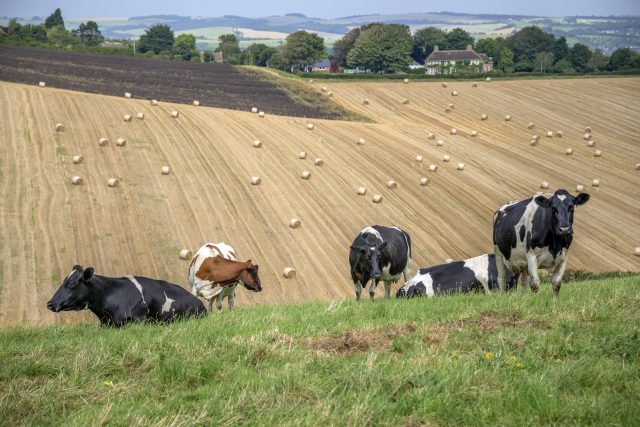Met Office
|
|
Met Office climate projections helping to inform the future of Great Britain’s farming
Blog posted by: Met Office Press Office, 30 October 2019.
Climate change is happening now. And increasingly it will affect every individual and every sector. Understanding the extent of climate change across the UK – helping to inform local communities to stay safe and thrive – is a key driver for the Met Office’s scientific programme.
Agriculture – which has always been subject to the vagaries of the British weather – is likely to be one of the most impacted sectors in a rapidly changing climate, according to new research.
The future of British farming, both arable and livestock, is likely to be affected by future climate change according to climate projection information provided by the Met Office.
Dr Lizzie Kendon is a science manager at the Met Office. She said: “The Met Office carries out very high-resolution climate projections, which provide detailed information on how the UK’s climate is likely to change over the next century. Any farmer knows that agriculture and the climate are inextricably linked, and a changing climate may bring changes to the industry.”
A new study published today led by the University of Exeter – using climate projection data from the Met Office – is suggesting that unchecked climate change could create a significant impact on farming in Great Britain, helping to redraw the agricultural map: driving Britain’s arable farming north and west, and potentially leaving the east and south-east unable to support crop growing.
At present, arable farming predominates in the east and south-east, with livestock rearing tending to dominate in the remaining areas.
The new study looks at the effects of the 5.0 °C warming predicted by 2100 if the world’s carbon emissions continue to rise at the current rate (a scenario known as RCP 8.5).
The study shows as well as being significantly warmer, Britain would have a predicted 140mm less rainfall per growing season (April to September) with more acute drying than this in the south-east.
“Britain is relatively cool and damp, so a warmer and drier growing season is generally expected to increase arable production,” said Dr Paul Ritchie, of the University of Exeter.
“However, our research suggests that, by 2100, unmitigated climate change would see a decline in arable farming in the east and south east. Crops could still be grown with the aid of irrigation, but this would involve either storing large quantities of winter rainfall or transporting water from wetter parts of the country. The amount of water required would be vast, representing a major challenge for UK agriculture.”
Part of the impact of warmer, drier conditions could be offset by higher levels of carbon dioxide in the atmosphere, because this allows plants to use water more efficiently.
“Our findings suggest that unmitigated climate change would change the way we use our land in Britain,” said Professor Tim Lenton, director of Exeter’s Global Systems Institute.
“In this scenario summer droughts mean that without significant irrigation, large regions of the east and south east of England would become less productive land. Meanwhile livestock farmers further west and north may be able to switch to more profitable arable farming.”
Dr Lizzie Kendon concluded: “We’re delighted that our projections have been pivotal in determining the climate challenges for the future of British farming; one of our vital industries.
“The climate is changing and will continue to change but armed with the best climate projections, industries like farming will know what’s coming and will be able to adapt to the new climate we’ll all be facing”
The research team – including the Met Office, the University of Trento and Wageningen University – used state-of-the-art, kilometre-scale climate change scenarios to drive a land surface model (JULES; Joint UK Land Environment Simulator) and an ECOnometric AGricultural land use model (ECOAG).
The study was supported by the Natural Environment Research Council. The paper, published in Environmental Research Letters, is entitled: “Large changes in Great Britain’s vegetation and agricultural land-use predicted under unmitigated climate change.”
* UK Climate Projections (UKCP) provides the most up-to-date assessment of how the climate of the UK may change over the 21st century. To find out more about how different sectors may use the new set of UK climate projections, have a look at these six project leaflets – written by sector specialists for their sectors. The leaflets cover water resources management, flood risk, coastal erosion risk, forestry as well as buildings design. http://bit.ly/36br8DB
Original article link: https://blog.metoffice.gov.uk/2019/10/30/met-office-climate-projections-helping-to-inform-the-future-of-great-britains-farming/



